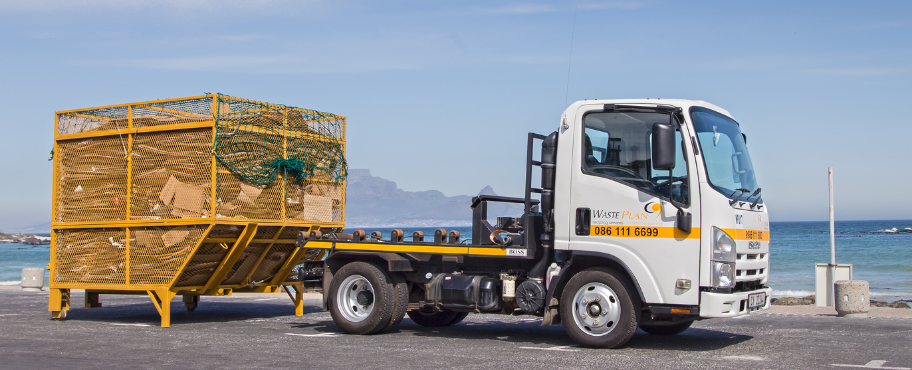Specialised Waste Management in removal and recycling has become imperative to ensure compliance. Find out how to ensure waste management success.
Legislation is coming down hard and social consciousness is rising rapidly on the waste management landscape in South Africa. New levels of ecological accountability mean that waste is becoming a specialised field. Gone are the days when all waste was thrown into the same bin, with the same destination for disposal on the horizon.
Today, waste management is trickier, with all kinds of penalties as well as opportunities to navigate and harness for greater sustainability. It’s important that your business understands the nature of specialised waste – what qualifies as specialised waste, what can be recycled, and what unique processes are required to manage its disposal. What’s more, it’s important that you capitalise on these special services so that you can cut costs and build your bottom line for greater business impact.
E-waste
Technically speaking, e-waste is seen as anything that comes with a plug. This could be anything from your toaster to your TV, but within an economy of scale, e-waste generally refers to electrical and office-related equipment. There is a tremendous amount of value locked up in your old computers and electronics. If your business is large enough and located within reasonable distance to a recycling facility, WastePlan could possibly offer you free collection and disposal. If your company does not qualify for these benefits, you pay for its disposal as part of your monthly standard fees. Contact us today to see if your business qualifies for free collection.
Liquid and hazardous waste
Since August 2019, all forms of liquid waste are banned from landfills and must be disposed of at an alternative designated waste management facility. This is making SA businesses rethink the liquid products they use, as well as how they regard their post-production value and recyclability.
Some of these products can be recycled. Hazardous waste can even be used as alternative fuel sources for energy production, even if on a small scale. But to convert your hazardous waste to value-add products, it will depend on the content of your liquid waste, as well as how much waste you produce and from where you operate. Should you qualify, hazardous waste removal could be offered at zero cost. Otherwise collection and disposal costs will be an added expense to your monthly bill, and costs will depend on the content of the liquid waste.
Fluorescents
Fluorescent bulbs should be placed in designated boxes and recycled. The glass, aluminium and phosphor can all be safely recovered and reused. So too can the mercury, which is considered a hazardous waste but contains extractable value. The cost of recycling fluorescent bulbs is to the client. But the win is in knowing that, for every kilogram of waste recycled, you will save the cost of dumping that kilogram of waste.
Food waste
Food waste is a fast growing market, thanks to the Western Cape’s imminent crackdown on organic waste to landfill by 2022. With a target ban of 50% by this year (100% ban by 2027), businesses are seeking new, meaningful solutions to reduce and repurpose their post-consumer and unconsumed food. Businesses will also feel the added pressure to reduce their waste to landfill now that the SA Carbon Tax has come into effect and makes it demand on company status quo.
Here is the chain of command when it comes to managing your food waste:
- Reduce
- See where and how you can eat, use and waste less food.
- Donate to charity
- Food is often wasted when it’s past expiry, but still fit for human consumption. Consider giving your freshly expired food to a local charity or NGO who can make use of it.
- Animal feed
- Once unfit for humans, food waste can be recycled into animal feed, which can significantly improve the livestock sector’s carbon footprint. Contact us to see whether we can connect you to a local manufacturer.
- Composting
- Your decomposing organics can be redirected to a local composter to become compost and other valuable agricultural products. Contact us to see whether we can connect you to a local composter.
- Anaerobic digestion
- Through this natural process, microorganisms convert organic matter into biogas and digested material, creating a new closed cycle of value. The innovation is on the rise in South Africa, and could be a benefit to your organisation. Contact WastePlan today to see if there’s an opportunity for you.
Who pays for your food waste to be collected and recycled? In short, you do. But given that our staff separates your waste streams at the source, we help maximise your rates of recovery and optimise your recyclability. This directly translates into cost savings for your company, which can then be used to offset those collection costs and streamline processes.
To be clear, there is a price tag to managing your waste and recycling. But a more holistic view, one that rewards you for reducing and recycling your waste streams, will easily see the benefits that outshine the costs. Interested to know how your organisation can optimise costs and reduce your specialised waste streams? Take the waste gap analysis or contact us to set up a free professional consultation.





